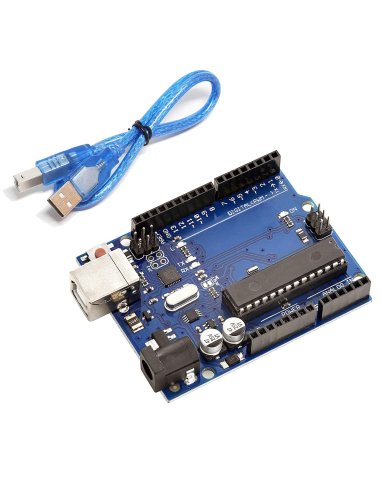-
ARDUINO
- RASPBERRY
- MICRO:BIT
- KITS
-
COMPONENTES
-
Resistências Elétricas
- Kit de Resistências
- Resistências 1% 125mW
- Resistencias 1% 250mW
- Resistencias 1% 500mW
- Resistencias 1% 600mW
- Resistências 1% 1W
- Resistencias 1% 2W
- Resistências 5% 125mW
- Resistencias 5% 250mW
- Resistencias 5% 500mW
- Resistências 5% 1W
- Resistencias 5% 2W
- Resistencias 5% 3W
- Resistências Potência
- Resistências Várias
- Redes Resistencias
- Termistores
- Trimmers
- Trimmers 3296
- Joysticks
- Botões
- Potenciometro slider
- Potenciometros Rotativos
- Potenciometro Multivolta
- Potenciometros Motorizados
- MODULOS
- SENSORES
- ROBÓTICA
- IMPRESSÃO 3D
-
FERRAMENTAS
Ferramenta Eletronica
- Acessórios
- Analisador Logico
- Alicates para Eletronica
- Berbequins
- Caixas Arrumação
- Chaves de Precisão
- Chaves Ajuste
- Extensões
- Fita Isoladora
- Fonte de Alimentação
- kit Ferramentas
- Lupa Eletronica
- Aparelhos de Medida, Multímetros e Outros
- Osciloscopios
- Pinças para Eletrónica
- Pontas de Prova
- Material Soldadura
- Spray de Limpeza
- Tornos e Suportes
- PROMOÇÕES
- CHEQUE PRENDA
Arduino Uno R3 Compatível com Cabo USB
Arduino Uno R3 Compatível com Cabo USB
Arduino UNO R3 é uma placa de desenvolvimento baseada no microcontrolador ATmega328. É a placa de desenvolvimento mais conhecida e usada em todo o mundo!
Esta placa compatível é um clone do Arduino Uno R3, o que a torna mais barata e, embora não venha do mesmo fornecedor, as diferenças são quase inexistentes, pois tem exactamante os mesmos componentes.
Descrição
Arduino Uno R3 Compatível com Cabo USB
Informação do fabricante:
The Uno R3 compatible is a direct (it is open source, after all) copy of the Arduino Uno R3. It is quite a bit less expensive than the original Arduino Uno R3. Although the parts are not from the same suppliers, the PCB appears to have been made from the original Arduino PCB files, with a few modifications.
The Uno is a microcontroller board based on the ATmega328P. It has 14 digital input/output pins (of which 6 can be used as PWM outputs), 6 analog inputs, a 16 MHz quartz crystal, a USB connection, a power jack, an ICSP header and a reset button. It contains everything needed to support the microcontroller; simply connect it to a computer with a USB cable or power it with a AC-to-DC adapter or battery to get started.. You can tinker with your UNO without worrying too much about doing something wrong, worst case scenario you can replace the chip for a few dollars and start over again.
| Microcontroller | ATmega328P |
| Operating Voltage | 5V |
| Input Voltage (recommended) | 7-12V |
| Input Voltage (limit) | 6-20V |
| Digital I/O Pins | 14 (of which 6 provide PWM output) |
| PWM Digital I/O Pins | 6 |
| Analog Input Pins | 6 |
| DC Current per I/O Pin | 20 mA |
| DC Current for 3.3V Pin | 50 mA |
| Flash Memory | 32 KB (ATmega328P) of which 0.5 KB used by bootloader |
| SRAM | 2 KB (ATmega328P) |
| EEPROM | 1 KB (ATmega328P) |
| Clock Speed | 16 MHz |
| Length | 68.6 mm |
| Width | 53.4 mm |
| Weight | 25 g |

















